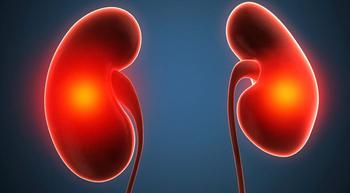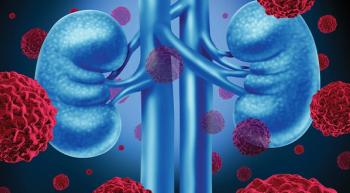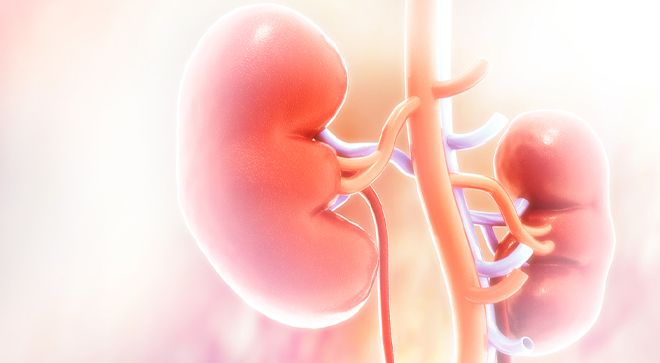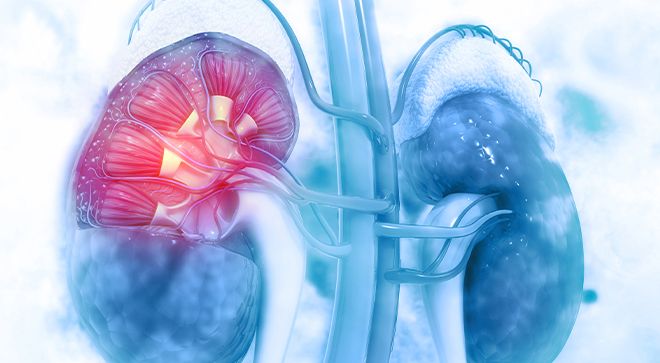
Kidney Cancer
Latest News
Latest Videos

More News

As the COVID-19 pandemic continues to impact the care of patients with metastatic renal cell carcinoma and other cancers, health care professionals are working together to stay vigilant and make the best treatment decisions for their patients by pooling their data with tools like the COVID-19 and Cancer Consortium, says Dr. Toni K. Choueiri.

Many factors impact outcomes in patients with advanced renal cell carcinoma, but recent findings suggest a patient’s age and gender are perhaps more important than previously realized.

The liquid biopsy test was also approved as a companion diagnostic test to uncover EGFR mutations in patients with NSCLC who could benefit from treatment with Tagrisso.

Dr. Toni K. Choueiri discusses what therapies are currently available for patients with metastatic renal cell carcinoma, as well as what new treatments could be on the horizon.

The FDA based its decision on data from a phase 2 trial which showed that MK-6482 induced clinical responses among patients with von Hippel-Lindau disease-associated kidney cancer.

While the combination of Opdivo and Yervoy is one of several treatment options for patients with metastatic renal cell carcinoma, many patients will likely progress after initial treatment. However, new research shows that when used after immune checkpoint inhibition, the combination shows promise.

Data from a phase 2 study presented during the 2020 ASCO Virtual Scientific Program demonstrated that Avastin (bevacizumab) in combination with Tarceva (erlotinib) was well tolerated and produced encouraging clinical outcomes in patients with advanced hereditary leiomyomatosis and renal cell carcinoma or sporadic papillary renal cell carcinoma.

Data from a phase 3 study presented at the 2020 ASCO Virtual Scientific Program showed that treatment with savolitinib demonstrated encouraging efficacy and an improved safety over standard-of-care Sutent (sunitinib) in patients with MET-driven papillary renal cell carcinoma.

A roundup of the latest news and updates for patients with Renal Cell Carcinoma from CURE®.

A variety of novel treatments, including immunotherapies, extend life for patients with advanced kidney cancer.

Getting kidney cancer treatment during the COVID-19 pandemic.

Kidney cancer positives that might come from this pandemic.

How kidney cancer affects the risks of coronavirus.

A message from the KCA’s CEO and President about COVID-19.

Kidney cancer changed how Tracie saw her world.

On his motorcycle, Stewy rides for kidney cancer.

A clinical trial and a positive attitude helped Bill Brown ring the bell.

Dawne Gee worked hard to get answers about her kidney cancer.

“These results continue to support pembrolizumab (Keytruda) plus axitinib (Inlyta) as a standard of care for patients with previously untreated advanced RCC,” said lead study author Dr. Elizabeth R. Plimack.

The HIF-2a Inhibitor induced clinical responses among patients with von Hippel-Lindau disease–associated kidney cancer, according to results presented at the 2020 ASCO Virtual Scientific Program.

When compared with Nexavar, Fotivda showed improved progression-free survival, and a more manageable safety profile for patients with relapsed or refractory metastatic renal cell carcinoma.

“Those who are doing well and are stable in terms of safety and tolerability can come into the office less often,” Dr. David R. Spigel, said. “(This is) a big win.”

Dr. Brian Rini discussed the benefits of treating patients with relapsed or refractory renal cell carcinoma with the vascular endothelial growth factor tyrosine kinase inhibitor.

Further follow up of the CheckMate-214 trial continues to show the superior long-term outcomes of Opdivo and Yervoy in treatment of patients with advanced renal cell carcinoma.

Patients with advanced renal cell carcinoma may soon have a new option in the novel combination of Opdivo (nivolumab) and Cabometyx (cabozantinib).













